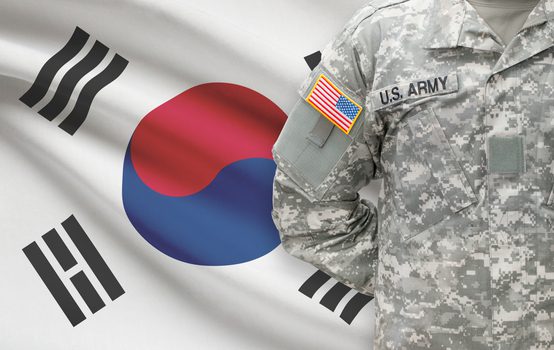The Cost of Free-Riding

As Vice President Mike Pence arrived in Seoul this week, he called the U.S. commitment to South Korea “iron-clad and immutable.” That might sound good to South Koreans, but their dependence on the American military is something they may come to regret.
South Korea has long been a notorious free-rider on U.S. security efforts. Although the country has an economy by most estimates 40 times larger than North Korea’s, Seoul persists in underinvesting in its own security. Despite Pyongyang’s repeated menacing behavior over the years, South Korea still spends an anemic 2.5 percent of its GDP on defense. While the South Korean military has some significant capabilities, it remains heavily dependent on the United States in crucial areas, especially air and naval power.
Such free-riding has saved South Korean taxpayers a great deal of money, and a succession of governments have resisted U.S. calls to adopt a more robust military effort. Instead, Korean officials have made economic development and other domestic programs a higher priority. One South Korean security expert candidly conveyed the thinking of his country’s political and policy elites at a security conference in Seoul when he rejected an American participant’s call for South Korea to take more responsibility for its defense. “We have domestic needs,” the South Korean responded.
Beyond the obvious financial benefits in having another country subsidize Korea’s defense, it is diplomatically and psychologically reassuring to have a superpower as a protector. But there is also a major downside to such dependence. The principal drawback is that crucial decisions about national security are not in the hands of the protectorate’s political leadership. In the case of the U.S.-South Korean alliance, Washington has always dominated the decision-making process. That should be especially worrisome to Korean leaders and the public when, as in the current environment, a military crisis surfaces.
The underlying danger of dependence should have become evident decades ago. The most telling case occurred in 1994 when Washington saw growing evidence that Pyongyang was processing plutonium for a nuclear-weapons program. Bill Clinton’s administration reacted in a thoroughly militant manner. In his memoirs, Clinton stated that “I was determined to prevent North Korea from developing a nuclear arsenal, even at the risk of war.” He had Secretary of Defense William Perry convey that message in the strongest terms to various audiences on multiple occasions, “even saying we would not rule out a preemptive military strike.”
It was not just bluster. Perry later conceded that the administration seriously considered conducting “surgical strikes” against North Korea’s embryonic nuclear installations. Fortunately, former President Jimmy Carter enticed Clinton to let him approach Pyongyang and conduct talks to resolve the crisis peacefully. But it was a close call. And at no time during the episode did Clinton or his advisers even hint that South Korea’s wishes would have a major influence on Washington’s decision about launching air strikes. Seoul certainly would not have had a veto over U.S. policy.
The same problem arising from South Korea’s security dependence exists with the current crisis. The Trump administration has stressed on several occasions that all options, including military force, are on the table. Washington has escalated tensions by sending an aircraft carrier strike group to waters off the Korean Peninsula. Once again, there is no indication that even vociferous South Korean objections would dissuade the administration from launching attacks on North Korea, if it decided to do so.
Yet if North Korea retaliates for a U.S. attack, South Korea would be the primary victim. Pyongyang has no capability to strike the American homeland, but Seoul, South Korea’s largest city and its economic heart, is located barely 30 miles south of the Demilitarized Zone separating the two Koreas, and it is highly vulnerable to a North Korean artillery barrage. Civilian fatalities would number in the thousands or tens of thousands.
Every sensible person hopes that the current crisis will be resolved peacefully, but even if it is, South Koreans ought to reconsider whether their alliance with the United States is such a bargain after all. The financial savings and other benefits from free-riding won’t mean much if Washington’s rash actions entangle South Korea in a catastrophic war. Free-riding is not necessarily free. It may come at a horrific price in both treasure and blood.
Ted Galen Carpenter, a senior fellow in defense and foreign policy studies at the Cato Institute, is the author or coauthor of 10 books on international affairs, including The Korean Conundrum: America’s Troubled Relations with North and South Korea.
Comments